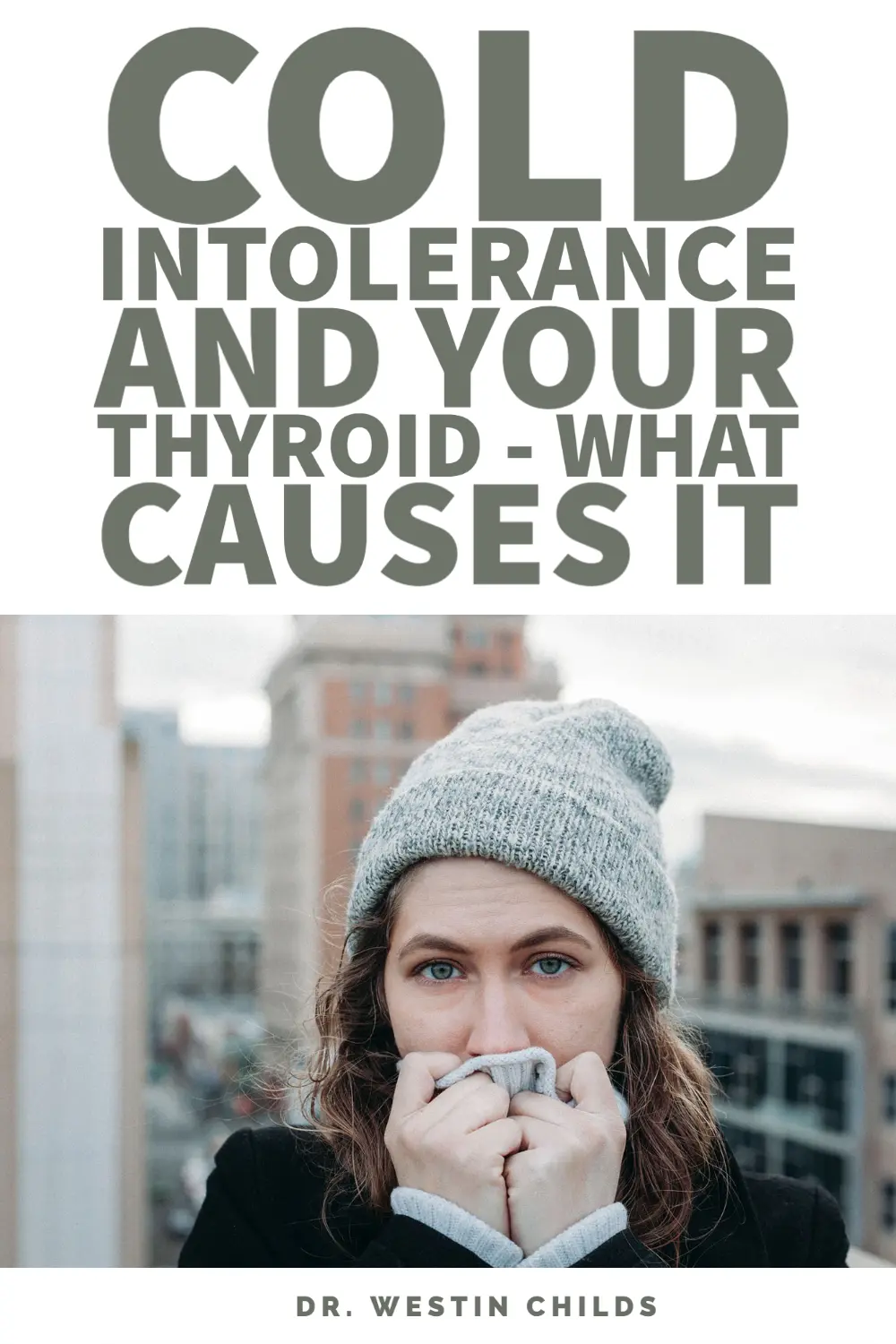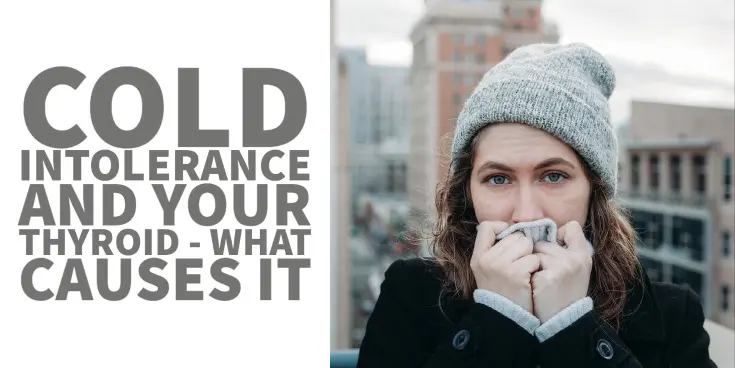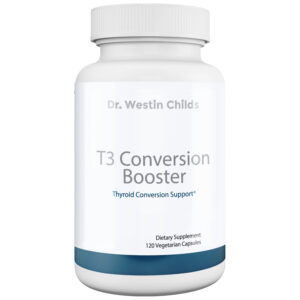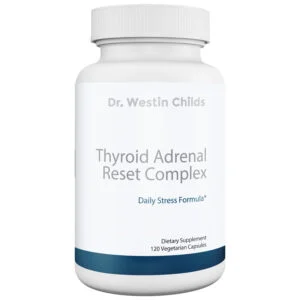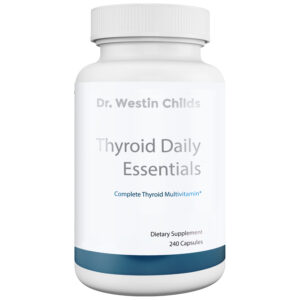Cold Intolerance and your Thyroid
One of the most common symptoms of low thyroid function is cold intolerance.
And there are literally millions of patients who suffer from cold intolerance.
It may not be the most ‘sexy’ symptom to complain about if you have low thyroid function, I would save that for something like hair loss or weight gain which are much more difficult to treat compared to cold intolerance but it’s a very important early warning sign that something is off with your thyroid!
And it should, therefore, not be ignored.
So while we are going to primarily focus on hypothyroidism as a cause of cold intolerance you should also be aware that other conditions can cause this symptom.
And that’s really the best way to think about cold intolerance, as a symptom.
By itself, it doesn’t necessarily mean something but it gives you important information about how well your body can produce energy, how much blood flow is circulating to your tissues, how well your mitochondria are working, and other information about your blood vessels.
Why are we focusing on cold intolerance in the setting of low thyroid function?
Because it’s the most common cause of this particular symptom and if you have cold intolerance it’s the first thing you should look for.
If you find that you don’t have low thyroid function then you can always go looking at the other causes but I recommend starting with an evaluation of your thyroid first.
DOWNLOAD FREE RESOURCES
Foods to Avoid if you Have Thyroid Problems:
I’ve found that these 10 foods cause the most problems for thyroid patients. Learn which foods you should avoid if you have thyroid disease of any type.
The Complete List of Thyroid Lab tests:
The list includes optimal ranges, normal ranges, and the complete list of tests you need to diagnose and manage thyroid disease correctly!
The ‘Positive Sock Sign’ as a Hypothyroid Symptom
I think one of the most telling symptoms of low thyroid function (also termed hypothyroidism) is that of the positive sock sign.
What is a positive sock sign you ask?
It’s a little test I use to determine if someone has low thyroid function and it goes something like this…
Do you wear socks to bed at night because you can’t stand how cold your feet get at night? Even in the summer?
If the answer to this question is yes then YOU have a positive sock sign.
And, so far, I’ve never met anyone who had a positive sock sign and who didn’t have low thyroid function.
In fact, I consider this test to be so sensitive that I will often treat patients who have a positive sock sign before getting their labs back to prove that they really do have low thyroid function.
Why is that?
Because it’s absolutely NOT normal for you to have cold hands and feet, especially in the summer when the ambient temperature is higher than comfortable room temperature!
Your body comes equipped with enough feedback loops and systems in place to help your body regulate its own temperature!
If you are not regulating your own temperature then we automatically know that there is something wrong with at least one or more of these feedback loops.
And since your thyroid is the primary source of temperature regulation (1) (more on that below) it’s the first place to look.
What Causes Cold Intolerance?
We’ve gone this far and we haven’t actually defined what cold intolerance is so let’s take a second to do that and then we will jump into what actually causes it.
Cold intolerance is simply defined as a sensation of you (the individual) being intolerant to cold temperatures.
You might ask yourself:
Isn’t it normal for me to be intolerant to cold temperatures?
And the answer is yes, but people with cold intolerance as a symptom experience this symptom when NO ONE else is.
For instance:
It would be considered normal to have cold intolerance if you are outside and the temperature is 40 degrees or less.
It would NOT be considered normal to have cold intolerance if you are outside and the temperature is 80 degrees or higher.
And those people who have cold intolerance, as many of you reading this probably do, may experience intolerance at even higher temperatures.
So cold intolerance is really defined as the inability to handle cold temperatures when other people can.
I should also point out that those people who have cold intolerance tend to get very irritable and angry when exposed to cold temperatures.
This is probably because of the impact that cold temperatures have on the body when your body can’t regulate its temperature.
But what actually causes this symptom of cold intolerance?
It really stems from a failure of the systems your body has in place to regulate your own body temperature.
And pretty much all of this regulation (well, at least 60% of it) stems from your thyroid gland.
The remainder stems from hypothalamic function or the function of your brain.
But back to the thyroid for a second.
Your thyroid helps control your body temperature by regulating energy production in your cells, by regulating heat production in your body, and by regulating mitochondrial energy production.

You probably already intuitively understand how this works even if this is your first time hearing about this.
Anything in your body that produces energy will produce heat.
You can create your own heat by simply rubbing your hands together.
You are using energy to move the muscles in your hands and arms which produces heat and the friction created from rubbing them together creates even more heat.
As long as your cells produce enough energy (through mitochondria) your body should have sufficient heat in basically every cell in your body.
Some heat makes it to your extremities through your blood (which carries heat throughout your body) but most of the energy in your extremities comes from cellular function.
If your thyroid isn’t working properly then the following things will happen:
- Your cells will not produce enough energy (2)
- Your mitochondria will not produce enough ATP
- The temperature of your cells will slightly drop (3)
- You will become intolerant of cold
So, if you have cold intolerance related to your thyroid this is what is happening to your cells/body.
Treating and Managing Cold Intolerance
As annoying as cold intolerance is, it’s actually really easy to treat and manage.
In fact, you really shouldn’t accept anything but a complete resolution of your cold intolerance as an outcome.
Because, if you don’t completely remove the symptom then you can say for sure that your problem has not been sufficiently treated.
And we know this because of how cold intolerance and thyroid function are related.
Cold intolerance stems from low thyroid function.
And it’s possible to completely normalize thyroid function with the use of certain prescription medications (or through natural routes if that is your preference).
Treating cold intolerance as a symptom is really that easy.
Fix your thyroid and you will fix your cold intolerance.
As easy as it sounds, though, it tends to be slightly more difficult in the real world.
Much of the reason that so many thyroid patients continue to suffer from hypothyroid symptoms, including cold intolerance, is that many thyroid patients remain undertreated despite taking thyroid medication.
The good news is that you can use some of your symptoms, especially cold intolerance, as a barometer to determine whether or not you are on the right treatment.
By focusing on your body temperature, in addition to your thyroid labs, you can tweak your thyroid medication enough to completely reverse your symptoms.
But let me make one thing clear:
If you continue to have cold intolerance despite taking thyroid medications such as levothyroxine or Synthroid then you are most likely not getting ENOUGH medication or you are taking the wrong type of medication.
I should also add that if you have cold intolerance you should ALWAYS be tested for low thyroid function because of the relationship that they have with one another.
Properly Testing your Thyroid if you have Cold Intolerance
What should you do if you have the symptom of cold intolerance?
Pretty much no matter what you need to get your thyroid tested.
This includes those people who have KNOWN thyroid problems and who are already taking thyroid medication and it also includes people who only have cold intolerance and no known diagnosis of hypothyroidism.
The key here is to get the RIGHT thyroid lab tests.
The standard thyroid lab tests that doctors tend to order will usually not be sufficient to catch early hypothyroidism.
And this is important because cold intolerance tends to be an EARLY symptom of low thyroid function.
Many people with cold intolerance who have early hypothyroidism will not show up on standard thyroid lab tests but they will show up if you get the expanded panel.
You’ll want to get these tests:
Most doctors will only look at the TSH when they are trying to diagnose low thyroid function.
But, as I stated, the TSH only starts to show up once your disease is moderately advanced.
For early diagnosis, you need to pay closer attention to your free T3 and reverse T3 levels.
People with early hypothyroidism will see their free T3 lower and their reverse T3 rise and this marker show up before the TSH starts to rise.
Final Thoughts
Cold intolerance is probably one of the more obnoxious and annoying symptoms associated with low thyroid function.
It gives you valuable insight as to how well your thyroid is working both in your cells and in your peripheral tissues.
Those people who have low thyroid function AND cold intolerance should be evaluated with an expanded thyroid lab panel to see if their thyroid is being undertreated (or to see if they should start taking thyroid medication).
If you have cold intolerance AND you are already taking thyroid medication then you should have your dose adjusted, most likely in an upward direction.
It is possible for you to completely eliminate the symptom of cold intolerance provided you completely restore your thyroid function back to its normal state.
Now I want to hear from you:
Are you suffering from cold intolerance?
Have you seen any improvement in your symptoms by taking thyroid medication?
Are you still experiencing cold intolerance even though you are taking thyroid medication?
Do you think your cold intolerance is caused by your thyroid or some other issue?
Leave your questions or comments below!
